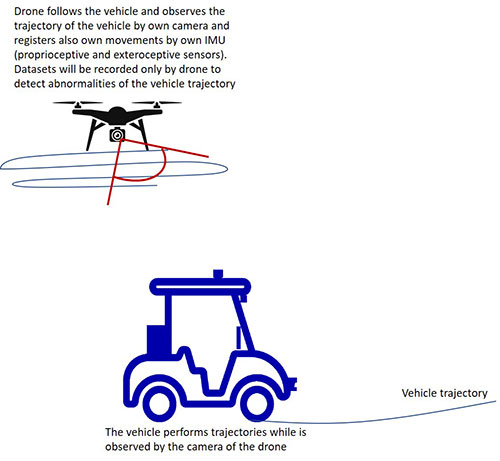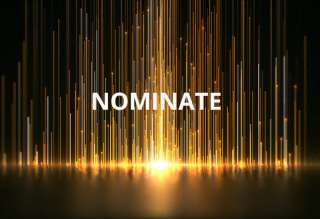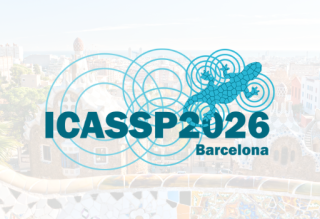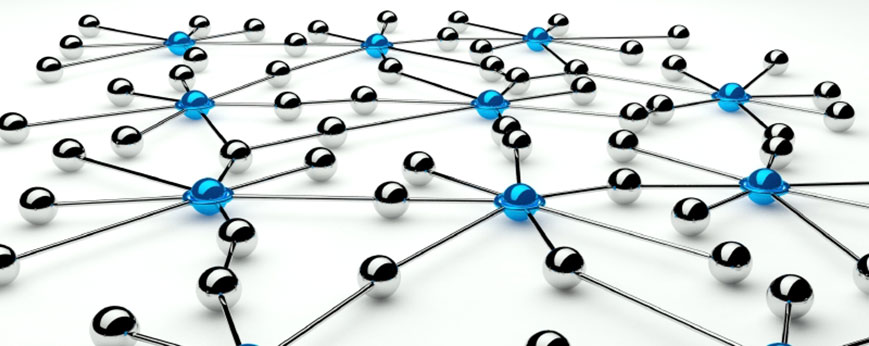- Our Story
- Publications & Resources
- Publications & Resources
- Publications
- IEEE Signal Processing Magazine
- IEEE Journal of Selected Topics in Signal Processing
- IEEE Signal Processing Letters
- IEEE Transactions on Computational Imaging
- IEEE Transactions on Image Processing
- IEEE Transactions on Information Forensics and Security
- IEEE Transactions on Multimedia
- IEEE Transactions on Signal and Information Processing over Networks
- IEEE Transactions on Signal Processing
- IEEE TCI
- IEEE TSIPN
- Data & Challenges
- Submit Manuscript
- Guidelines
- Information for Authors
- Special Issue Deadlines
- Overview Articles
- Top Accessed Articles
- SPS Newsletter
- SigPort
- SPS Resource Center
- Publications FAQ
- Blog
- News
- Dataset Papers
- Conferences & Events
- Community & Involvement
- Professional Development
- For Volunteers
- Information for Authors-OJSP
-
Home
Conferences Events IEEE Signal Processing Magazine IEEE SPL Article IEEE TIFS Article IEEE TMM Article IEEE TSP Article Jobs in Signal Processing Lectures Machine Learning Seasonal Schools Signal Processing News SPM Article SPS Distinguished Lectures SPS Newsletter Article SPS Webinar SPS Webinars SPS Webinar Series Webinar webinars
-
Our Story
What is Signal Processing?

The technology we use, and even rely on, in our everyday lives –computers, radios, video, cell phones – is enabled by signal processing. Learn More » -
Publications & Resources
-
SPS Resources
- Signal Processing Magazine The premier publication of the society.
- SPS Newsletter Monthly updates in Signal Processing
- SPS Resource Center Online library of tutorials, lectures, and presentations.
- SigPort Online repository for reports, papers, and more.
- SPS Feed The latest news, events, and more from the world of Signal Processing.
-
SPS Resources
-
Conferences & Events
-
Community & Involvement
-
Membership
- Join SPS The IEEE Signal Processing Magazine, Conference, Discounts, Awards, Collaborations, and more!
- Chapter Locator Find your local chapter and connect with fellow industry professionals, academics and students
- Women in Signal Processing Networking and engagement opportunities for women across signal processing disciplines
- Students Scholarships, conference discounts, travel grants, SP Cup, VIP Cup, 5-MICC
- Young Professionals Career development opportunities, networking
- Get Involved
-
Technical Committees
- Applied Signal Processing Systems
- Audio and Acoustic Signal Processing
- Bio Imaging and Signal Processing
- Computational Imaging
- Image Video and Multidimensional Signal Processing
- Information Forensics and Security
- Machine Learning for Signal Processing
- Multimedia Signal Processing
- Sensor Array and Multichannel
- Signal Processing for Communication and Networking
- Signal Processing Theory and Methods
- Speech and Language Processing
- Technical Working Groups
- More TC Resources
-
Membership
-
Professional Development
-
Professional Development
- Signal Processing Mentorship Academy (SigMA) Program
- Micro Mentoring Experience Program (MiME)
- Distinguished Lecturer Program
- Distinguished Lecturers
- Distinguished Lecturer Nominations
- Past Lecturers
- Distinguished Industry Speaker Program
- Distinguished Industry Speakers
- Distinguished Industry Speaker Nominations
- Industry Resources
- IEEE Training Materials
- Jobs in Signal Processing: IEEE Job Site
-
Career Resources
- SPS Education Program Educational content in signal processing and related fields.
- Distinguished Lecturer Program Chapters have access to educators and authors in the fields of Signal Processing
- Job Opportunities Signal Processing and Technical Committee specific job opportunities
- Job Submission Form Employers may submit opportunities in the area of Signal Processing.
-
Professional Development
-
For Volunteers
-
For Board & Committee Members
- Board Agenda/Minutes* Agendas, minutes and supporting documentation for Board and Committee Members
- SPS Directory* Directory of volunteers, society and division directory for Board and Committee Members.
- Membership Development Reports* Insight into the Society’s month-over-month and year-over-year growths and declines for Board and Committee Members
-
For Board & Committee Members
Popular Pages
Today's:
- Submit Your Papers for ICASSP 2026!
- Information for Authors
- Last Call for Nominations: Technical Committee Vice Chair and Member Positions
- Take Part in the 2025 Low-Resource Audio Codec (LRAC) Challenge
- IEEE Transactions on Information Forensics and Security
- IEEE JSTSP Special Issue on Advanced AI and Signal Processing for Low-Altitude Wireless Networks
- IEEE Signal Processing Letters
- (ICME 2026) 2026 IEEE International Conference on Multimedia and Expo
- (ASRU 2025) 2025 IEEE Automatic Speech Recognition and Understanding Workshop
- Submit a Manuscript
- IEEE Transactions on Multimedia
- Access Restricted
- Information for Authors-SPL
- IEEE Transactions on Image Processing
- Membership
All time:
- Information for Authors
- Submit a Manuscript
- IEEE Transactions on Image Processing
- IEEE Transactions on Information Forensics and Security
- IEEE Transactions on Multimedia
- IEEE Transactions on Audio, Speech and Language Processing
- IEEE Signal Processing Letters
- IEEE Transactions on Signal Processing
- Conferences & Events
- IEEE Journal of Selected Topics in Signal Processing
- Information for Authors-SPL
- Conference Call for Papers
- Signal Processing 101
- IEEE Signal Processing Magazine
- Guidelines
Last viewed:
- Submit a Manuscript
- (ICASSP 2026) 2026 IEEE International Conference on Acoustics, Speech, and Signal Processing
- Information for Authors
- ICASSP 2024 Speech Signal Improvement Challenge: ICASSP 2024
- Technical Program Manager, Information Exploitation John Hopkins University - Applied Physics Laboratory
- Jayanthi Sivaswamy
- Predict-and-Update Network: Audio-Visual Speech Recognition Inspired by Human Speech Perception
- IEEE Transactions on Audio, Speech and Language Processing
- IEEE Transactions on Information Forensics and Security
- About Transactions on Information Forensics and Security
- Distinguished Lecture: Prof. Gesualdo Scutari (Purdue University, USA)
- Publications & Resources
- Publications
- Guidelines
- Signal Processing 101
ICAS 2021 Challenge: Self-awareness in Heterogeneous Multi-Robot Systems
You are here
Newsletter Menu
Newsletter Categories
Top Reasons to Join SPS Today!
1. IEEE Signal Processing Magazine
2. Signal Processing Digital Library*
3. Inside Signal Processing Newsletter
4. SPS Resource Center
5. Career advancement & recognition
6. Discounts on conferences and publications
7. Professional networking
8. Communities for students, young professionals, and women
9. Volunteer opportunities
10. Coming soon! PDH/CEU credits
Click here to learn more.
News and Resources for Members of the IEEE Signal Processing Society
ICAS 2021 Challenge: Self-awareness in Heterogeneous Multi-Robot Systems
A new Challenge on self-awareness in heterogeneous multi-robot systems has been organized within the first International Conference on Autonomous Systems (ICAS 2021). The research field of this competition is the unsupervised anomaly detection through self-aware autonomous systems, which is an active topic involving IEEE Signal Processing Society, also through the Autonomous Systems Initiative, and Intelligent Transportation Systems Society.
The competition will allow all participating teams to create intelligent and autonomous unsupervised algorithms that will be capable of determining the normal or non-normal behavior of a ground vehicle that interplays with the environment. So, the challenge is focused to discover anomalies automatically in a common dataset that will be delivered to all teams who participate in the challenge.
The goal of the competition is to motivate the academic and industrial researchers to create and innovate in the field of the autonomous systems by developing unsupervised algorithms, where future intelligent systems will be capable to understand the environment and detects anomalies automatically. The autonomous understanding by the observation of the environment is an unresolved field in present autonomous systems. So, the aim of this challenge is to detect own and non-own behaviors and anomalies in the navigation of the ground and aerial systems based on sensor data in real-time. This task is particularly challenging because of several factors: first of all, the high variability of situations that the autonomous system has to cope with, make practically impossible the application of classical data fusion, signal processing and supervised techniques. Moreover, available data are acquired by real autonomous systems moving in complex environments, thus they suffer from noise and possible synchronization problems that have to be considered for solving the required tasks. Finally, proposed solutions must be able to work in real time in embedded architecture with low computational capabilities and very limited power resources.
The competition consists of the following stages: an open competition that any eligible team can participate in, and a closed final competition. Teams participating in the open competition must submit their results no later than Friday 14th May 2021. Then, the three teams with the highest performance in the open competition will be selected as finalists and will be invited to participate in the final competition. Finalists will be announced on Friday 28th May 2021. The three teams invited to participate in the final competition will be judged at ICAS 2021, which will be held on August 11-13, 2021 at Montreal, Canada.
So, the organizers are proud to announce this challenge: an exciting unsupervised anomaly detection challenge, where autonomous systems interplay with the environment to discover anomalies automatically.
For more information, please visit the ICAS 2021 Challenge page for updates.
On the behalf of the organizers,
David Martín and Lucio Marcenaro

Open Calls
| Nomination/Position | Deadline |
|---|---|
| Call for Mentors: 2025 IEEE SPS SigMA Program - Signal Processing Mentorship Academy | 14 September 2025 |
| Last Call for Nominations: Technical Committee Vice Chair and Member Positions | 15 September 2025 |
| Call for Nominations: Technical Committee Vice Chair and Member Positions | 15 September 2025 |
| Submit Your Papers for ICASSP 2026! | 17 September 2025 |
| Call for Nominations: Awards Board, Industry Board and Nominations & Elections Committee | 19 September 2025 |
| Meet the 2025 Candidates: IEEE President-Elect | 1 October 2025 |
| Take Part in the 2025 Low-Resource Audio Codec (LRAC) Challenge | 1 October 2025 |
| Call for proposals: 2027 IEEE Conference on Artificial Intelligence (CAI) | 1 October 2025 |
| Call for Nominations for the SPS Chapter of the Year Award | 15 October 2025 |
| Submit a Proposal for ICASSP 2030 | 31 October 2025 |
| Call for Project Proposals: IEEE SPS SigMA Program - Signal Processing Mentorship Academy | 2 November 2025 |
Society News
- Call for Nominations: Board of Governors Members-at-Large and Regional Directors-at-Large
- 183 Signal Processing Society Members Elevated to Senior Member!
- Deadline Extended - Call for Officer Nominations: President-Elect and Vice President-Technical Directions
- Job Opportunities in Signal Processing
- Updated SPS Chapter Logo Usage and Branding Guidelines
- IEEE Brain Community
Education & Resources
Technical Committee News
Publications News
SPS Social Media
- IEEE SPS Facebook Page https://www.facebook.com/ieeeSPS
- IEEE SPS X Page https://x.com/IEEEsps
- IEEE SPS Instagram Page https://www.instagram.com/ieeesps/?hl=en
- IEEE SPS LinkedIn Page https://www.linkedin.com/company/ieeesps/
- IEEE SPS YouTube Channel https://www.youtube.com/ieeeSPS
Home | Sitemap | Contact | Accessibility | Nondiscrimination Policy | IEEE Ethics Reporting | IEEE Privacy Policy | Terms | Feedback
© Copyright 2025 IEEE - All rights reserved. Use of this website signifies your agreement to the IEEE Terms and Conditions.
A public charity, IEEE is the world's largest technical professional organization dedicated to advancing technology for the benefit of humanity.









